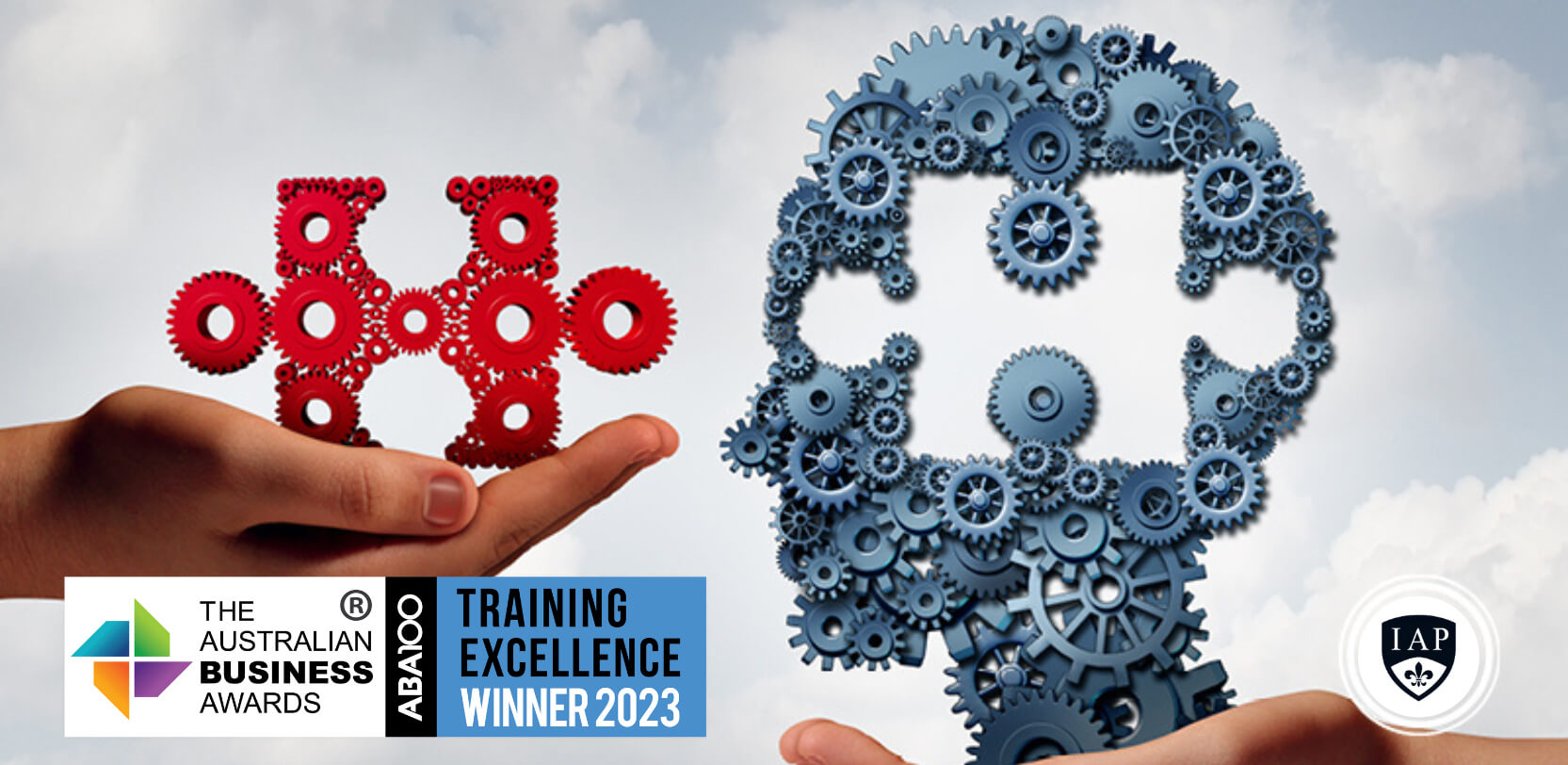7 Top Reasons Why AI Can Not Take Your Role As A Clinical Hypnotherapist
As the world navigates an unprecedented landscape, the echoes of the pandemic still impact our work lives, propelling a majority towards remote work. At the same time, AI questions the future of many jobs and industries. One role that resonates with the irreplaceable value of human empathy is a Clinical Hypnotherapist.
The CEDA (Committee for Economic Development of Australia) report published in 2015 highlighted the potential impact of technological advancements, particularly automation and AI, on the job market. The report suggested that around five million jobs in Australia could be lost within the next decade. It emphasised that routine and repetitive tasks across various industries, such as manufacturing, administration, and customer service, were most vulnerable to automation. Jobs that require a personal touch or empathy were the least vulnerable.
Recognising the potential ripple effects of AI and automation across industries is crucial.
HERE ARE FIVE KEY INSIGHTS TO HELP GUIDE YOUR UNDERSTANDING:
- Automation Impact
AI and automation can potentially automate specific tasks and job functions across various industries. Repetitive and routine tasks that follow well-defined rules or patterns are more susceptible to automation. Jobs that involve manual labour, data processing, basic customer service, and predictive tasks may be at higher risk. - Skill-Based Impact
Jobs requiring higher-level cognitive skills, creativity, complex decision-making, and emotional intelligence are less likely to be fully automated. These jobs often involve critical thinking, problem-solving, adaptability, and interpersonal interaction, which are harder to replicate with AI. Roles such as Clinical Hypnotherapists or Strategic Psychotherapists can fall into this category. - Transformation and Adaptation
AI is expected to transform job roles and create new ones rather than eliminate them. It can augment human capabilities, improve productivity, and enhance decision-making. Many jobs will require individuals to work alongside AI, leveraging technology as a tool to improve their performance and efficiency. - Industries Affected
Certain industries are more susceptible to AI disruption. For example, manufacturing and assembly line jobs have been increasingly automated for years. Other areas like transportation, logistics, customer service, data entry, and essential accounting functions may experience changes due to AI adoption. - Job Titles
While it’s challenging to predict specific job titles that will be affected, here are some examples of job categories that may see significant changes due to AI:- Transportation: Autonomous vehicles could impact jobs for drivers and delivery personnel.
- Manufacturing: AI and robotics may automate assembly line tasks, affecting production workers.
- Retail: Automated checkout systems and online shopping could impact cashier and sales positions.
- Customer Service: AI-powered chatbots and virtual assistants may affect entry-level customer support roles.
- Data Entry and Processing: Automated algorithms and machine learning can streamline data-related tasks.
- Financial Services: Robo-advisors and automated trading systems could change specific roles in finance and investment advisory.
- Healthcare: AI applications like diagnostic assistance systems may impact specific roles within radiology or pathology.
SAFETY IN A SEA OF UNCERTAINTY
The CEDA report also acknowledged that new job opportunities would emerge as technology advanced, focusing on healthcare, education, and the creative sector. It stressed the importance of proactive policy responses and investment in education and training to mitigate the adverse effects of job displacement and ensure a smooth transition to the future economy.
These new roles might focus on managing, developing, or collaborating with AI systems and jobs requiring unique human skills like creativity, innovation, empathy and emotional intelligence. I.e. Therapist roles such as a Psychologist, Counsellor, Clinical Hypnotherapist or Strategic Psychotherapist would be roles that involve empathy and emotional intelligence.
WHY THE MENTAL HEALTH FIELD? HYPNOTHERAPY, COUNSELLING, PSYCHOLOGY, PSYCHOTHERAPY AND THE LIKES.
Given this clear and present danger, despite the impediments of the economic downturn, now might be the best time in history to join the Mental Health Profession. From the 2021 NSMHWB (ABS 2022a), it is estimated that:
- Over 2 in 5 (44%) Australians aged 16–85 had experienced a mental disorder during their lifetime.
- 1 in 5 (21%) people who had experienced a mental disorder in their lifetime had symptoms within the 12 months before the survey interview. For these people, anxiety disorders were the most prevalent type of disorder (17%), followed by affective disorders (8%) and substance use disorders (3%).
- A higher proportion of females than males (45% compared with 43%) had experienced a mental disorder in their lifetime, with a higher proportion of females than males (25% compared with 18%) also experiencing symptoms in the 12 months before the survey.
- 16–24-year-olds (40%) were most likely to have experienced symptoms of a mental disorder in the previous 12 months, while those aged 75–85 were the least likely (4%).
This equates to a growing demand for compassionate mental health professionals, and one profession that is standing firm amidst these technological advancements is Clinical Hypnotherapy.
HERE ARE 7 TOP REASONS WHY AI CAN NOT COMPLETE THE ROLE OF A THERAPIST AND WHY YOU MAY CONSIDER BECOMING A CLINICAL HYPNOTHERAPIST:
- Demand
While some jobs may be at risk of being automated, the demand for skilled Hypnotherapists continues to grow.
In times of economic downturn or crisis, individuals often seek support and guidance to cope with stress, anxiety, and other mental health challenges. The need for mental health professionals is even more pronounced during such periods.
- Unique Human Qualities
Despite advancements in AI, human qualities such as empathy, intuition, and understanding cannot be replicated by machines. Hypnotherapy is a profoundly human-centred profession that requires emotional intelligence, active listening, and the ability to build rapport and trust with clients. These qualities are essential in helping individuals navigate complex emotional and psychological issues. - Diverse Client Base
Hypnotherapy is a broad field that encompasses various specialisations, including marriage and family therapy, addiction Hypnotherapy, career Hypnotherapy, and trauma Hypnotherapy, among others. Specialising in a particular area allows individuals to cater to specific client needs and establish themselves as experts in their chosen field. - Adaptability and Resilience
The field of Hypnotherapy requires professionals to continually update their skills and knowledge to stay relevant. By embracing ongoing professional development and staying abreast of emerging therapeutic approaches and techniques, Hypnotherapists can adapt to changes and meet clients’ evolving needs. - Job Satisfaction and Impact
Hypnotherapy is a profoundly rewarding profession. Helping individuals overcome challenges, achieve personal growth, and improve their mental well-being can have a lasting positive impact on their lives. The intrinsic rewards of making a difference in someone’s life can bring a sense of fulfilment and purpose to Hypnotherapists, which is invaluable. - Collaborative Approach
AI is not a substitute for human connection and collaboration. The future of a Clinical Hypnotherapist might involve leveraging AI as a complementary tool to enhance therapeutic interventions, such as using virtual reality for exposure therapy or incorporating AI-based assessment tools. By embracing technology and integrating it into their practice, Clinical hypnotherapists can augment their effectiveness rather than being replaced by AI. - Ethical Considerations
The ethical dimensions of therapy, such as maintaining confidentiality, respecting client autonomy, and adhering to professional codes of conduct, highlight the importance of human involvement. AI cannot fully replace the nuanced decision-making and ethical considerations that arise in the therapeutic relationship.
In summary, although the realm of AI might seem overwhelming, it brings forth unique opportunities for human-centric jobs, and a clinical hypnotherapist is one of them. Our 11271NAT Diploma of Clinical Hypnosis and Strategic Psychotherapy could help you become a therapist and future-proof your future.
Are you ready to embark on this transformative journey? Whether you’re interested in becoming a Clinical Hypnotherapist and Strategic Psychotherapist or looking to add this therapeutic modality to your existing skills, we’re here to help guide you.
Connect with a Course Advisor today by calling us on 1300 915 497 or click here to start your journey.








